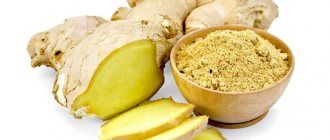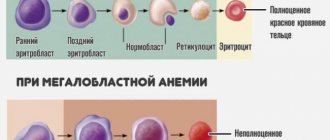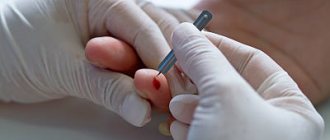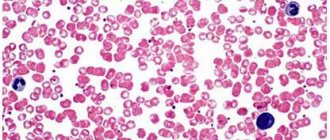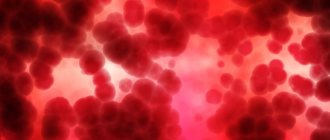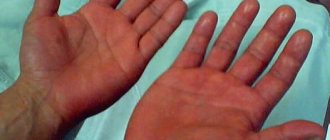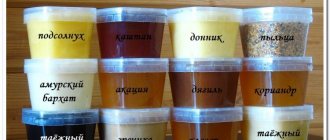One of the most popular herbs is ginger. It is universal as a medicinal preparation and as a seasoning: it is used in the preparation of meat, vegetable dishes and baked goods, including baked goods.
A special place in many European cuisines is occupied by drinks made from this spice: delicious teas, which also have medicinal properties, and mixtures with other plant products, which are actively used in folk medicine.
According to research , ginger is also valuable as a beneficial remedy for the circulatory and cardiovascular systems, due to its ability to lower cholesterol, thin the blood and prevent blood clots. This is what we will talk about in this article.
Medicinal recipes based on it
Ginger is used fresh, dried, and even after heat treatment. In each specific case, it is better to choose your own cooking option.
- Ginger tea. In order for the root vegetable to fully release all its beneficial properties, you need to grate it on a fine grater and brew a teaspoon of the mixture with a glass of boiling water on top. After steeping for 10-15 minutes, you can add lemon and honey - also blood thinners.
- Decoction. To prepare it, chop 10 g of root with a knife and add 100 ml of water. Boil under a closed lid for 15 minutes, then infuse, cool and filter. You need to drink this drug 4 tablespoons a day on an empty stomach.
- Tea with cinnamon and lemon. With a liter of water, brought not to a boil, but to a “white key” state, brew a tablespoon of green tea, chopped medium-sized ginger root, and a teaspoon of ground cinnamon. Leave for 20 minutes, add the juice of half a lemon and honey. The resulting infusion is drunk little by little over two days.
- Ginger juice . This is a concentrated and very strong remedy that can be used anywhere like grated ginger, but primarily for the treatment of inflammatory diseases during colds. The easiest way to prepare juice is through a juicer suitable for working with root vegetables, or by grating it on a fine grater and squeezing it through cheesecloth. The juice acts as a strong natural antibiotic if you drink it in its pure form, a teaspoon with the addition of a small amount of salt. Ginger juice is also an effective remedy for stomatitis and toothache.
- Essential oil. It can be purchased at the pharmacy chain. Take one drop per teaspoon of honey after meals. Frequency - depending on the condition and individual tolerance.
Ginger root for thrombosis
Since blood clots are a consequence of blood thickening, ginger, as a good remedy for thinning it, is very useful for thrombosis. Coumarins, contained in large quantities in the roots, prevent the formation of clots and thin the blood. And gingerol has the ability to dissolve already formed blood clots.
The spice is taken as part of teas; you can simply include it in your diet as part of various dishes.
Tea with spicy root and honey with the addition of cinnamon and lemon slices is very useful for those suffering from thrombosis. It is best to take this remedy in the morning during breakfast.
Important! When using ginger to thin the blood, you must remember that it has a number of contraindications and cannot be combined with some pharmacological drugs.
Contraindications
Any useful product has contraindications. Ginger has few of them, but they must be strictly taken into account during treatment.
- Allergy. Individual intolerance to the product must be monitored throughout the course of treatment, since its occurrence is unpredictable. If skin rashes, swelling and redness of the skin appear, you should immediately stop using ginger in any form.
- Exacerbation of gastrointestinal problems. Ulcers of the stomach and duodenum, liver diseases (hepatitis C, cirrhosis) and gall bladder are a strict contraindication to the use of hot spices, which irritate the mucous membranes, stimulate the movement of stones along the bile ducts and activate liver secretion.
- Gastrointestinal tumors. Tumors in the area of the stomach and intestines may begin to increase in size under the influence of substances contained in ginger root.
- Acute conditions of the cardiovascular system. Ginger is a healing product, but during an exacerbation there is no need to provoke the heart muscle or blood vessels. It is advisable to refrain from use during acute attacks of hypertension, immediately after strokes and heart attacks, etc.
- Hemorrhagic stroke. After this type of stroke, the vessels are in a painful state. You should not provoke a recurrence of the health problem.
- Hemophilia. This is a blood clotting disorder. It occurs infrequently, but ginger cannot be used at all for hemophilia, since patients already suffer from reduced clotting.
- Skin diseases. The essential oils of the plant have a strong effect, so you need to be careful with dermatoses, eczema and other pathologies.
- Menstruation. Ginger should be used with caution during these periods, especially for those women who are prone to prolonged bleeding.
- Blood transfusion. This is also a critical situation in a person’s life, which requires careful handling of the patient’s body.
Since ginger peel contains a lot of useful substances, the root vegetable must be ground directly with it. But first it must be thoroughly washed and it is advisable to soak it in clean water for half an hour before use in order to remove any remaining chemicals that may be used in growing this spice.
How does ginger affect the blood?
Ginger is recommended for the treatment and prevention of many diseases . Due to its composition, it is used for a number of ailments resulting from blood thickening.
Thickens or thins
Containing a whole range of biologically active substances, it is an antiplatelet agent, helping to reduce blood viscosity. This action of the roots is due to the content of a number of substances:
- omega-unsaturated fatty acids (Omega-3 and Omega-6);
- ascorbic acid;
- flavonoids;
- coumarins;
- gingerol.
Due to its high gingerol content, the plant is widely used in the production of blood thinners.
Did you know? Ginger does not lose its healing properties even when frozen, so it can be prepared for future use and used as needed all year round.
However, it should be borne in mind that the positive effect of spice on blood thickness directly depends on the quality of the vegetable. The most useful are young but large roots. They should be peeled as thinly as possible, since the maximum amount of beneficial substances is concentrated under the skin.
Are there any contraindications
The plant contains very active substances that can aggressively affect various systems and organs of the body.
- You should limit or exclude the spicy root from your diet:
- for problems with the mucous membranes of the stomach or intestines (for ulcers and gastritis, exclude from the diet);
- in the presence of tumors in the gastrointestinal tract (plant substances can provoke the growth of tumors);
- in case of liver diseases;
- for stones in the bile ducts (promotes the movement of stones along the paths);
- for hemorrhoids (especially with bleeding);
- in the presence of heart and vascular diseases (stroke, hypertension, cardiac ischemia, etc.);
- in the second half of pregnancy;
- at elevated temperatures;
- for skin diseases;
- in case of individual intolerance.
Also, when eating spices, you must remember that it can be combined with a number of drugs, enhancing their effect and causing an overdose.
Important! American scientists have calculated the safe dosage of ginger root.
It is 2 g per 1 kg of body weight. You should avoid this spice if you are taking medications that are prescribed:
- to lower blood pressure;
- for diabetes mellitus;
- to thin the blood.
Children can consume the spice from the age of two, but in small quantities.
Ginger for thrombophlebitis
For varicose veins, it can be used both for internal use and in the form of compresses. Tea infused with a small slice of root is an effective remedy for the prevention of vein diseases , their inflammation at different stages, and helps improve blood circulation.
Compresses for thrombophlebitis are made from the roots of the spice in combination with honey.
To do this, the root is grated with a fine grater, mixed with a beekeeping product and applied to the inflamed area. It is enough to keep the compress for three hours or a little longer, wrapped in a blanket.
Does ginger root thin the blood or not?
In Europe, ginger is known and appreciated primarily as a universal spice, which is good for both meat and baking. In the East, the plant is treated as a powerful medicine that heals not only the body, but also the soul. In ancient literature, many recipes for medicines based on ginger root are described.
So, does ginger thin the blood or not? The answer is definitely yes. Moreover, the root performs not only a narrow function of thinning the blood, but a broader one. This concerns increasing blood flow in general, breaking down cholesterol, cleansing the walls of blood vessels, and strengthening them.
The root contains amino acids, vitamins, minerals, bitterness, flavonoids and gingerol - a special substance that is found in such quantities in single products known to man
It is gingerol, in combination with essential amino acids, that thins the blood and prevents the formation of blood clots. In official medicine, special medicines have been created based on gingerol to thin the blood, as an alternative to aspirin. After all, acetylsalicylic acid has many contraindications, for example, stomach diseases, asthma and others.
How does ginger work? Essential amino acids and gingerol stimulate the body's production of special enzymes. They prevent platelets from sticking together and forming blood clots, which are the main cause of heart attacks. Stimulating blood flow also has a positive effect on blood thickness, preventing cholesterol and other fats from accumulating in the lumens of blood vessels and forming plaques.
Additionally, a person feels a surge of strength, recovers faster from colds and acute respiratory viral infections, and improves digestion and the synthesis of certain hormones. Ginger is contraindicated for poor blood clotting, ulcers and gastritis, hypertension, kidney stones and gall bladder and some other chronic diseases.
Ginger is used in various forms to thin the blood. This is fresh crushed root, dried or juice from it. Fresh raw materials have high value. If a person has a predisposition to increased blood density, it is enough for him to drink a cup of tea with 2-3 slices of fresh root and a slice of lemon 1-2 times a day. This is a good preventive measure against further development of the disease. If a specific diagnosis is made, more serious means are needed.
Recipes for blood thinning:
- Decoction. Prepared from 10 g of crushed root and 100 ml of water. Cook the ginger over low heat for 15 minutes, let cool, strain and store in the refrigerator. Drink 4 tbsp. l. daily before or after meals.
- Oil infusion. Finely chop a piece of ginger weighing 15 g, put it in a glass container, pour in 150 ml of any vegetable oil. Leave for 2-3 days in a cool, dark place, store in the refrigerator. Take 1 dessert spoon 2 times a day before meals. The oil can be used as a dressing for salads, meat and fish.
- Infusion with cinnamon. Boil 1 liter of water, let cool to 85°C. Put 2 tsp in a thermos or kettle. green tea, 1 chopped ginger root, 1 tsp. ground cinnamon, add water. After 20 minutes, add honey to taste and the juice of half a lemon. Divide 1 liter of infusion into 2 parts for 2 days. Drink small portions throughout the day.
It is important to be systematic in treatment. Drink products with ginger constantly, taking breaks for 7-10 days. It is important to monitor the body's reaction to medications. If there is any negative change in well-being, treatment is stopped. Usually the spice is well tolerated and has a high positive effect, but there are cases of allergies and irritation of the gastric mucosa.
Ginger does not thicken, but thins the blood, improves the condition of blood vessels in general, nourishes the body with vitamins and minerals and improves immunity. Even just one item from this list is worth eating this healing and aromatic overseas spice.
Simple recipes at home
You can help your body with blood thickening and prevent more serious diseases of the vascular system by using folk recipes that include ginger. In combination with other components, the spice enhances its beneficial properties, cleansing blood vessels, preventing the formation of blood clots and helping to get rid of previously formed ones.
Find out about the benefits and harms of honey water in the morning on an empty stomach for the body.
Ginger, cinnamon and lemon
The infusion helps reduce blood viscosity. To prepare it you will need:
- water - 1 l;
- ginger - 1 medium-sized root;
- cinnamon - 1 pinch;
- lemon - 1/2 fruit.
A step-by-step recipe for preparing the mixture will look like this:
- Peel the root and cut into small pieces.
- Cut the lemon into slices.
- To boil water.
- Place the chopped root in a bowl, add cinnamon, and pour boiling water over it.
- Leave for a quarter of an hour.
- Strain.
- Add prepared lemon and stir.
To improve the taste, you can add a little honey to the drink.
The entire volume of the prepared infusion should be drunk during the day, regardless of meals.
Ginger, walnuts and honey
In combination with walnuts and honey, ginger perfectly cleanses and strengthens blood vessels. To clean blood vessels, it is useful to use a product using these products. It includes:
- ginger - 1 medium-sized root;
- honey - 1.5 tbsp;
- peeled walnuts - 1.5 tbsp.
To prepare the mixture, you need to follow these steps:
- Thinly remove the skin from the young root and grate it on a fine grater.
- Chop the nuts.
- Warm thick honey in a water bath before use.
- Place the prepared ingredients in a glass jar.
- Pour in honey.
- Mix well.
Keep refrigerated. Use 1-2 tbsp. l. in a day.
Did you know? The rich chemical composition helps with exhaustion and vitamin deficiency. Traditional medicine recommends taking it for the health of the liver, heart, and brain.
This drug is taken to reduce blood viscosity, prevent the formation of blood clots, and for atherosclerosis.

